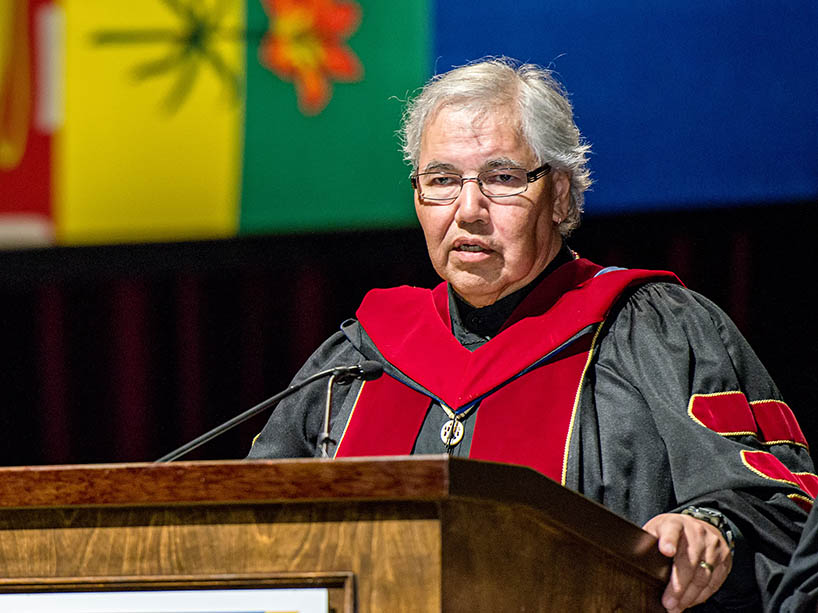Thank you, Murray Sinclair

Murray Sinclair received an honorary doctorate from TMU in 2013. Photo courtesy of Toronto Metropolitan University Archives
“Canada has lost a giant — a brilliant legal mind, a champion of Indigenous rights, and a trusted leader on our journey of Reconciliation.” These were the words shared by Prime Minister Justin Trudeau on the passing of Murray Sinclair, former judge, senator, chancellor and chair of Canada’s Truth and Reconciliation Commission into residential schools.
Sinclair, a member of Peguis First Nation, died on Nov. 6 at the age of 73. Just hours after his death was announced, a teepee and sacred fire were erected outside the Manitoba legislature for the province’s first Indigenous judge and lifelong advocate for Indigenous people, culture and ways of knowing.
"Murray was the icon of Indigenous folk like myself,” said Joanne Okimawininew Dallaire, TMU’s Elder (Ke Shay Hayo) and senior advisor, Indigenous relations and reconciliation. “He came to his way of life and principles by living honestly, speaking the truth and not giving up or into pressures demanded of him. He sacrificed his personal needs for the people. He has left enormous footprints. I hope we dare to move."
Murray Sinclair’s work leading the Truth and Reconciliation Commission led to important changes at TMU. “We stand today as Toronto Metropolitan University, the first post-secondary institution in North America to change its name to address its colonial history, because of Murray Sinclair’s work,” said TMU President and Vice-Chancellor Mohamed Lachemi.
“The Commission’s report and 94 calls to action paved the way for us to convene the Standing Strong (Mash Koh Wee Kah Pooh Win) Task Force (SSTF) to address the legacy of Egerton Ryerson. Murray Sinclair generously shared his knowledge and expertise with the SSTF and helped inform its landmark report and 22 recommendations, including our name change. He will forever be part of our journey to a more equitable, and inclusive future.”
Prior to Sinclair’s involvement with the SSTF and in recognition of his pioneering career championing Indigenous rights, TMU awarded Sinclair an honorary degree in 2013. Three years later, the proud Anishinaabe leader delivered the keynote address at the university’s faculty conference where he spoke about Indigenous history and shared his personal story of reconnecting to his Indigenous heritage after growing up prohibited from speaking Ojibwe or Cree because of Christian teachings and government policies and oppressive laws.
